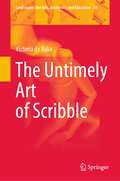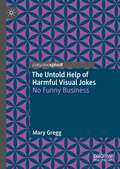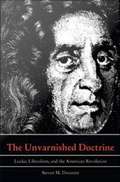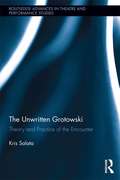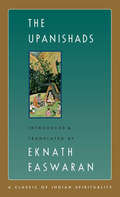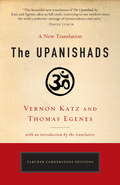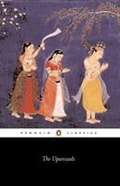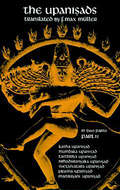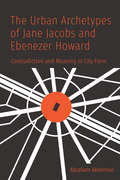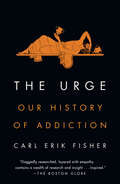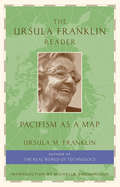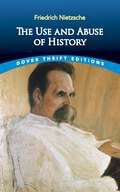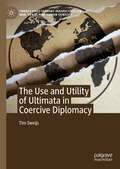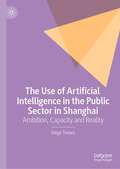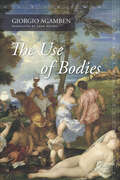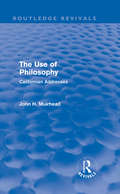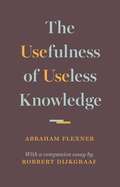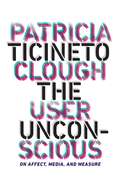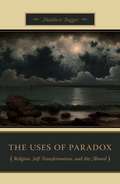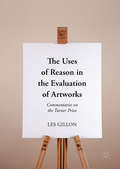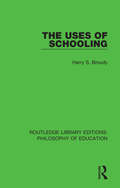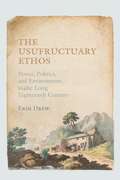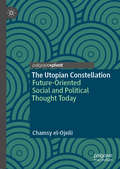- Table View
- List View
The Untimely Art of Scribble (Landscapes: the Arts, Aesthetics, and Education #34)
by Victoria de RijkeThis book offers new definitions, vocabularies and insights for “scribbling”, viewing it as a fascinating and revealing process shared by many different disciplines and practices. The book provides a fresh and timely perspective on the nature of mark making and the persistence of the gestural impulse from the earliest graphic marks to the most sophisticated artistic production. The typical treatment of scribbling in the literature of artistic development has cast the practice as a prelude to representation in drawing and writing, with only occasional acknowledgment of the continuing joy and experiment of making marks across many arts practices. The continuous line the author traces between the universal practice of scribbling in infancy and early childhood and the work of radical creativity for contemporary and historical artists is original and clarifying, expanding the range of drawing behaviors to that of avant-garde painters, performance and the digital.
The Untold Help of Harmful Visual Jokes: No Funny Business
by Mary GreggThis book argues that when visual jokes are harmful, they harm in a specific way: a subject’s personhood is revoked in a way that differs both in kind and degree depending on whether that person is depicted or described. Such revocation can occur in every role and any stage within the joke’s context, from character to audience member, from moment of depiction to uncritical exposure. Unlike a mere unhumorous insult, which doesn’t require the sympathy of its audience but can operate solely between the target and the bully, a joke requires a particular kind of response from its audience to complete itself—to “deliver”, which requires not only some degree of complicity from audience members, but a complicity earned at the expense of the joke’s referent. This book shows how we need not prevent the occurrence of these things in order to undermine their oppressive power—we only need the right kind of recontextualization: turning those utterances into jokes or turning those jokes against themselves. Unlike other forms of visual oppression, the harms contained within visual jokes can be reconfigured to affirm those they were created to harm, changing their function from jokes which attack others to jokes which attack themselves, empowering those they were created to target by calling into question the problematic conceptions of audiences who are sympathetic to the harmful joke’s initial formulation.
The Unvarnished Doctrine: Locke, Liberalism, and the American Revolution
by Steven M. DworetzIn The Unvarnished Doctrine, Steven M. Dworetz addresses two critical issues in contemporary thinking on the American Revolution--the ideological character of this event, and, more specifically, the relevance of "America's Philosopher, the Great Mr. Locke," in this experience. Recent interpretations of the American revolution, particularly those of Bailyn and Pocock, have incorporated an understanding of Locke as the moral apologist of unlimited accumulation and the original ideological crusader for the "spirit of capitalism," a view based largely on the work of theorists Leo Strauss and C. B. Macpherson. Drawing on an examination of sermons and tracts of the New England clergy, Dworetz argues that the colonists themselves did not hold this conception of Locke. Moreover, these ministers found an affinity with the principles of Locke's theistic liberalism and derived a moral justification for revolution from those principles. The connection between Locke and colonial clergy, Dworetz maintains, constitutes a significant, radicalizing force in American revolutionary thought.
The Unwritten Grotowski: Theory and Practice of the Encounter (Routledge Advances in Theatre & Performance Studies)
by Kris SalataThis book gives a new view on the legacy of Jerzy Grotowski (1933-1999), one of the central, and yet misunderstood, figures who shaped 20th-century theatre, focusing on his least known last phase of work on ancient songs and the craft of the performer. Salata posits Grotowski’s work as philosophical practice, and more particularly, as practical research in the phenomenology of being, arguing that Grotowski’s departure from theatrical productions (and thus critical consideration) resulted from his uncompromising pursuit of one central problem, "What does it mean to reveal oneself?" — the very question that drove his stage directing work. The book demonstrates that the answer led him through the path of gradually stripping the theatrical phenomenon down to its most elemental aspect, which shows itself through the craft of the performer as a non-representational event. This particular quality released at the heights of the art of the performer is referred to as aliveness, or true liveness in this study in order to shift scholarly focus onto something that has always fascinated great theatre practitioners, including Stanislavski and Grotowski, and of which academic scholarship has limited grasp. Salata’s theoretical analysis of aliveness reaches out to phenomenology and a broad range of post-structural philosophy and critical theory, through which Grotowski’s project is portrayed as philosophical practice.
The Upanishads
by Eknath EaswaranAmong the oldest of India's spiritual texts, the Upanishads are records of intensive question-and-answer sessions given by illumined sages to their students. Widely featured in philosophy courses, the Upanishads have puzzled and inspired wisdom seekers from Yeats to Schopenhauer. Eknath Easwaran makes this challenging text more accessible by selecting the passages most relevant to readers seeking timeless truths today. His accessible, highly readable translation and lively foreword place the teachings in a contemporary context for students and general readers alike.
The Upanishads
by Thomas Egenes Vernon KatzThis new translation of The Upanishads is at once delightfully simple and rigorously learned, providing today's readers with an accurate, accessible rendering of the core work of ancient Indian philosophy. The Upanishads are often considered the most important literature from ancient India. Yet many academic translators fail to capture the work's philosophical and spiritual subtlety, while others convey its poetry at the cost of literal meaning. This new translation by Vernon Katz and Thomas Egenes fills the need for an Upanishads that is clear, simple, and insightful - yet remains faithful to the original Sanskrit. As Western Sanskrit scholars who have spent their lives immersed in meditative practice, Katz and Egenes offer a unique perspective in penetrating the depths of Eastern wisdom and expressing these insights in modern yet poetic language. Their historical introduction is suited to newcomers and experienced readers alike, providing the perfect entry to this unparalleled work.From the Trade Paperback edition.
The Upanishads
by Thomas Egenes Vernon KatzThis new translation of The Upanishads is at once delightfully simple and rigorously learned, providing today's readers with an accurate, accessible rendering of the core work of ancient Indian philosophy. The Upanishads are often considered the most important literature from ancient India. Yet many academic translators fail to capture the work's philosophical and spiritual subtlety, while others convey its poetry at the cost of literal meaning. This new translation by Vernon Katz and Thomas Egenes fills the need for an Upanishads that is clear, simple, and insightful - yet remains faithful to the original Sanskrit. As Western Sanskrit scholars who have spent their lives immersed in meditative practice, Katz and Egenes offer a unique perspective in penetrating the depths of Eastern wisdom and expressing these insights in modern yet poetic language. Their historical introduction is suited to newcomers and experienced readers alike, providing the perfect entry to this unparalleled work.From the Trade Paperback edition.
The Upanishads
by Valerie Roebuck<p>An “Upanisad” is a teaching session with a guru, and the thirteen texts of the “Principal Upanisads”—which comprise this volume—form a series of philosophical discourses between teacher and student that question the inner meaning of the world. Composed beginning around the eighth century BCE, the Upanisads have been central to the development of Hinduism, exploring its central doctrines: rebirth, karma, overcoming death, and achieving detachment, equilibrium, and spiritual bliss. Speaking to the reader in direct, unadorned prose or lucid verse, the Upanisads collected here embody humanity’s perennial search for truth and knowledge. <p>Valerie Roebuck’s powerful new translation blends accuracy with readability and retains the oral style of these stirring and profound philosophical explorations. This volume includes an introduction to the text, information on Sanskrit pronunciation, suggestions for further reading, explanatory notes, and a glossary. <p>For more than seventy years, Penguin has been the leading publisher of classic literature in the English-speaking world. With more than 1,700 titles, Penguin Classics represents a global bookshelf of the best works throughout history and across genres and disciplines. Readers trust the series to provide authoritative texts enhanced by introductions and notes by distinguished scholars and contemporary authors, as well as up-to-date translations by award-winning translators.</p>
The Upanishads (The Sacred Books of the East #Part Two)
by F. Max MüllerThis two-volume set contains the famous Max Müller translation of the classical upanisads that first appeared as Volumes I and XV of the "Sacred Books of the East." It contains the full text, translated into English and annotated, of the following upanisads: Chandogya, Kena, Aitareya, Kaushitaki, Isa, Katha, Mundaka, Taittiriyaka, Brhadaranyaka, Svetasvatara, Prasna, and Maitriyana. These are the most important upanisads, the classical basic documents that have been accepted as authoritative by practically all Indian religious and philosophic traditions.These remarkable mystical and philosophical treatises have not only created the later wisdom of India, they have also played an important part in Western thought. While one many be doubtful of their claimed influence upon the Neoplatonists and the medieval Christian mystics, they still have greatly influenced later developments in Western philosophy, from the time of Schlegel, Hegel, Schopenhauer, and Schelling. Probably written by various authors over several centuries before 500 B.C., they exhibit a remarkable uniformity of purpose: they strive — through parable, proverb, simile, and metaphor, and through a method similar to Socratic dialogue — to arrive at truth without erecting a formal system.Although there have been other translations of the upanisads, this edition of Max Müller has long enjoyed the reputation of being the most scholarly. Not only does the translation contain the mature reflections of the greatest Indologist and Sanskritologist of the nineteenth century (who was also a profound philosopher in his own right), it also contains his long introductions of more than 250 pages, discussing the position of the upanisads and their value for the modern world.These profound writings are necessary reading for all Indologists, philosophers, and historians of religion. They are also most valuable experiences for the modern reader who is interested in learning about a great field of thought with deep mystical and existential implications.
The Urban Archetypes of Jane Jacobs and Ebenezer Howard: Contradiction and Meaning in City Form (G - Reference, Information And Interdisciplinary Subjects Ser.)
by Abraham AkkermanEbenezer Howard, an Englishman, and Jane Jacobs, a naturalized Canadian, personify the twentieth century’s opposing outlooks on cities. Howard had envisaged small towns, newly built from scratch, fashioned on single family homes with small gardens. Jacobs embraced existing inner-city neighbourhoods emphasizing the verve of the living street. From Howard’s idea, the American Dream of garden suburbs had emerged, yet his conceptualization of a modern city received criticism for being uniform and alienated from the rest of the city. Similarly, at the turn of the new century, Jacobs’ inner-city neighbourhoods came to be recognized as the result of commodification, vacillating between poverty and newly discovered hubs of urban authenticity. Presenting Howard and Jacobs within a psychocultural context, The Urban Archetypes of Jane Jacobs and Ebenezer Howard addresses our urban crisis in the recognition that "city form" is a gendered, allegorical medium expressing femininity and masculinity within two founding features of the built environment: void and volume. Both founding contrasts bring tensions, but also the opportunities of fusion between pairs of urban polarities: human scale against superscale, gait against speed, and spontaneity against surveillance. Jacobs and Howard, in their respective attitudes, have come to embrace the two ancient archetypes, the Garden and the Citadel, leaving it to future generations to blend their two contrarian stances.
The Urge: Our History of Addiction
by Carl Erik FisherAn authoritative, illuminating, and deeply humane history of addiction—a phenomenon that remains baffling and deeply misunderstood despite having touched countless lives—by an addiction psychiatrist striving to understand his own family and himselfEven after a decades-long opioid overdose crisis, intense controversy still rages over the fundamental nature of addiction and the best way to treat it. With uncommon empathy and erudition, Carl Erik Fisher draws on his own experience as a clinician, researcher, and alcoholic in recovery as he traces the history of a phenomenon that, centuries on, we hardly appear closer to understanding—let alone addressing effectively. As a psychiatrist-in-training fresh from medical school, Fisher was soon face-to-face with his own addiction crisis, one that nearly cost him everything. Desperate to make sense of the condition that had plagued his family for generations, he turned to the history of addiction, learning that the current quagmire is only the latest iteration of a centuries-old story: humans have struggled to define, treat, and control addictive behavior for most of recorded history, including well before the advent of modern science and medicine. A rich, sweeping history that probes not only medicine and science but also literature, religion, philosophy, and sociology, The Urge illuminates the extent to which the story of addiction has persistently reflected broader questions of what it means to be human and care for one another. Fisher introduces us to the people who have endeavored to address this complex condition through the ages: physicians and politicians, activists and artists, researchers and writers, and of course the legions of people who have struggled with their own addictions. He also examines the treatments and strategies that have produced hope and relief for many people with addiction, himself included. Only by reckoning with our history of addiction, he argues—our successes and our failures—can we light the way forward for those whose lives remain threatened by its hold. The Urge is at once an eye-opening history of ideas, a riveting personal story of addiction and recovery, and a clinician&’s urgent call for a more expansive, nuanced, and compassionate view of one of society&’s most intractable challenges.
The Ursula Franklin Reader: Pacifism as a Map
by Ursula FranklinFeminist, educator, Quaker, and physicist, Ursula Franklin has long been considered one of Canada’s foremost advocates and practitioners of pacifism. The Ursula Franklin Reader: Pacifism as a Map is a comprehensive collection of her work, and demonstrates subtle, yet critical, linkages across a range of subjects: the pursuit of peace and social justice, theology, feminism, environmental protection, education, government, and citizen activism. This thoughtful collection, drawn from more than four decades of research and teaching, brings readers into an intimate discussion with Franklin, and makes a passionate case for how to build a society centered around peace.
The Use and Abuse of History (Dover Thrift Editions)
by Friedrich Nietzsche"While life needs the services of history, it must just as clearly be comprehended that an excess measure of history will do harm to the living," declares Friedrich Nietzsche in this cautionary polemic. The iconoclastic philosopher warns us about the dangers of an uncritical devotion to the study of the past, which leads to destructive and limiting results — particularly in cases where long-ago events are exploited for nationalistic purposes. Nietzsche proposes three approaches to times gone by: the monumental, focusing on examples of human greatness; the antiquarian, involving immersion in a bygone period; and the critical, rejecting the old in favor of the new. He examines the pros and cons of each concept, favoring how the ancient Greeks looked at things, which balanced a consciousness of yesteryear with contemporary intellectual, cultural, and political sensibilities. Nietzsche’s emphasis on history as a dynamic, living culture rather than the subject of detached scholarship is certain to resonate with modern readers.
The Use and Utility of Ultimata in Coercive Diplomacy (Twenty-first Century Perspectives on War, Peace, and Human Conflict)
by Tim SweijsUniversity of Southern Denmark, Denmark Ultimata feature as a core concept in the coercive diplomacy scholarship. Conventional wisdom holds that pursuing an ultimatum strategy is risky. This book shows that the conventional wisdom is wrong on the basis of a new dataset of 87 ultimata issued from 1920–2020. It provides a historical examination of ultimata in Western strategic, political, and legal thought since antiquity until the present, and offers a four-pronged typology that explains their various purposes and effects: 1) the dictate, 2) the conditional war declaration, 3) the bluff, and 4) the brinkmanship ultimatum. The book yields a better understanding of interstate threat behaviour at a time of surging competition. Background materials can be consulted at www.coercivediplomacy.com.
The Use of Artificial Intelligence in the Public Sector in Shanghai: Ambition, Capacity and Reality
by Diego TodaroThis book examines how Shanghai aims to improve public service provision by accelerating the use of artificial intelligence (AI) in the public sector. After clarifying the technical and social factors that shape the use of AI in this area, the book delves into the AI policy environment and AI ecosystem of Shanghai to gauge the city’s capacity to implement public sector AI applications. Then it examines how this capacity translates into real-world policy initiatives through the investigation of case studies. It highlights the analytical, operational and political capabilities that determine the strengths and limitations of such initiatives in deploying AI in the public sector, and it assesses their impacts on public service provision in Shanghai. By using the findings on Shanghai to gain a deeper understanding of key topics in public sector AI research, this book also contributes new knowledge about the use of AI to improve the provision of public services.
The Use of Bodies: Homo Sacer IV, 2 (Meridian: Crossing Aesthetics)
by Giorgio Agamben translated by Adam KotskoGiorgio Agamben's Homo Sacer was one of the seminal works of political philosophy in recent decades. It was also the beginning of a series of interconnected investigations of staggering ambition and scope, investigating the deepest foundations of Western politics and thought. The Use of Bodies represents the ninth and final volume in this twenty-year undertaking, breaking considerable new ground while clarifying the stakes and implications of the project as a whole. It comprises three major sections. The first uses Aristotle's discussion of slavery as a starting point for radically rethinking notions of selfhood; the second calls for a complete reworking of Western ontology; and the third explores the enigmatic concept of "form-of-life," which is in many ways the motivating force behind the entire Homo Sacer project. Interwoven between these major sections are shorter reflections on individual thinkers (Debord, Foucault, and Heidegger), while the epilogue pushes toward a new approach to political life that breaks with the destructive deadlocks of Western thought. The Use of Bodies represents a true masterwork by one of our greatest living philosophers.
The Use of Philosophy: Californian Addresses (Routledge Revivals)
by John H MuirheadFirst published in 1928, this book reproduces the lectures and addresses that John Henry Muirhead gave on various occasions during the two and a half years he spent as Lecturer of Philosophy on the Mills Foundation at the University of California, USA. The different chapters look at the meaning and general place of Philosophy as a subject of study and the application of its leading conceptions to different areas of modern life, including science and politics. The final chapters however, present two short talks of a different nature, which were addressed to Scottish countrymen, gathered on foreign shores. This book outlines Muirhead's philosophical thoughts and conclusions to which he devoted his life.
The Usefulness of Useless Knowledge
by Abraham Flexner Robbert DijkgraafA forty-year tightening of funding for scientific research has meant that resources are increasingly directed toward applied or practical outcomes, with the intent of creating products of immediate value. In such a scenario, it makes sense to focus on the most identifiable and urgent problems, right? Actually, it doesn't. In his classic essay "The Usefulness of Useless Knowledge," Abraham Flexner, the founding director of the Institute for Advanced Study in Princeton and the man who helped bring Albert Einstein to the United States, describes a great paradox of scientific research. The search for answers to deep questions, motivated solely by curiosity and without concern for applications, often leads not only to the greatest scientific discoveries but also to the most revolutionary technological breakthroughs. In short, no quantum mechanics, no computer chips.This brief book includes Flexner's timeless 1939 essay alongside a new companion essay by Robbert Dijkgraaf, the Institute's current director, in which he shows that Flexner's defense of the value of "the unobstructed pursuit of useless knowledge" may be even more relevant today than it was in the early twentieth century. Dijkgraaf describes how basic research has led to major transformations in the past century and explains why it is an essential precondition of innovation and the first step in social and cultural change. He makes the case that society can achieve deeper understanding and practical progress today and tomorrow only by truly valuing and substantially funding the curiosity-driven "pursuit of useless knowledge" in both the sciences and the humanities.
The User Unconscious: On Affect, Media, and Measure
by Patricia Ticineto CloughWide-ranging essays and experimental prose forcefully demonstrate how digital media and computational technologies have redefined what it is to be human Over the past decade, digital media has expanded exponentially, becoming an essential part of daily life. The stimulating essays and experimental compositions in The User Unconscious delve into the ways digital media and computational technologies fundamentally affect our sense of self and the world we live in, from both human and other-than-human perspectives.Critical theorist Patricia Ticineto Clough&’s provocative essays center around the motif of the &“user unconscious&” to advance the challenging thesis that that we are both human and other-than-human: we now live, think, and dream within multiple layers of computational networks that are constantly present, radically transforming subjectivity, sociality, and unconscious processes.Drawing together rising strains of philosophy, critical theory, and media studies, as well as the political, social, and economic transformations that are shaping the twenty-first-century world, The User Unconscious points toward emergent crises and potentialities in both human subjectivity and sociality. Moving from affect to data, Clough forces us to see that digital media and computational technologies are not merely controlling us—they have already altered what it means to be human.
The Uses of Argument
by Stephen E. ToulminA central theme throughout the impressive series of philosophical books and articles Stephen Toulmin has published since 1948 is the way in which assertions and opinions concerning all sorts of topics, brought up in everyday life or in academic research, can be rationally justified. Is there one universal system of norms, by which all sorts of arguments in all sorts of fields must be judged, or must each sort of argument be judged according to its own norms? In The Uses of Argument (1958) Toulmin sets out his views on these questions for the first time. In spite of initial criticisms from logicians and fellow philosophers, The Uses of Argument has been an enduring source of inspiration and discussion to students of argumentation from all kinds of disciplinary background for more than forty years.
The Uses of Paradox: Religion, Self-Transformation, and the Absurd
by Matthew C. BaggerIn this groundbreaking comparative study, Matthew Bagger investigates the role of paradox in Western and Asian religious discourse. Drawing on both philosophy and social scientific theory, he offers a naturalistic explanation of religion's oft-noted propensity to sublime paradox and argues that religious thinkers employ intractable paradoxes as the basis for various techniques of self-transformation. Considering the writings of Kierkegaard, Pseudo-Dionysus, St. John of the Cross, N?g?rjuna, and Chuang-tzu, among others, Bagger identifies two religious uses of paradox: cognitive asceticism, which wields the psychological discomfort of paradox as an instrument of self-transformation, and mysticism, which seeks to transform the self through an alleged extraordinary cognition that ineffably comprehends paradox. Bagger contrasts these techniques of self-transformation with skepticism, which cultivates the appearance of contradiction in order to divest a person of beliefs altogether. Bagger further contends that a thinker's social attitudes determine his or her response to paradox. Attitudes concerning crossing the boundary of a social group prefigure attitudes concerning supposed truths that lie beyond the boundaries of understanding. Individuals who fear crossing the boundary of their social group and would prohibit them tend to use paradox ascetically, while individuals who find the controlled incorporation of outsiders enriching commonly find paradox revelatory. Although scholars have long noted that religious discourse seems to cultivate and perpetuate paradox, their scholarship tends to ratify religious attitudes toward paradox instead of explaining the unusual reaction paradox provokes. A vital contribution to discussions of mystical experience, The Uses of Paradox reveals how much this experience relies on social attitudes and cosmological speculation.
The Uses of Reason in the Evaluation of Artworks: Commentaries on the Turner Prize
by Les GillonThis book uses an examination of the annual Turner Prize to defend the view that the evaluation of artworks is a reason-based activity, notwithstanding the lack of any agreed criteria for judging excellence in art. It undertakes an empirical investigation of actual critical practice as evident within published commentaries on the Prize in order to examine and test theories of critical evaluation, including the ideas of Noel Carroll, Frank Sibley, Kendall Walton and Suzanne Langer. Case studies of work by Turner Prize winners such as Steve McQueen, Martin Creed, Tomma Abts are used to explore definitions of art and concepts of artistic value and meaning. The book will be of interest to academics in the fields of aesthetics, contemporary art and cultural studies, but also to practitioners working in the arts, media and education.
The Uses of Schooling (Routledge Library Editions: Philosophy of Education #5)
by Harry S. BroudyThe Uses of Schooling, first published in 1988, proposes a radically different approach to the evaluation of education. Professor Broudy shows that the common criteria of school effectiveness – that is the ability to replicate the end-of-course performance on examinations or to apply such results – clearly demonstrates the ‘uselessness’ of much of the investment made in schooling. This is so because, unless constantly reinforced by repetition the ability to replace test performance is rapidly diminished after formal school ends. This study will be of interest to students of education.
The Usufructuary Ethos: Power, Politics, and Environment in the Long Eighteenth Century
by Erin DrewAlthough a study of past ideas, The Usufructuary Ethos resonates with contemporary debates about our human responsibilities to the natural world in the face of climate change and mass extinction.
The Utopian Constellation: Future-Oriented Social and Political Thought Today
by Chamsy el-OjeiliThis book examines the utopian dimension of contemporary social and political thought. Arguing for a utopian optic for the human sciences, el-Ojeili claims that major transformations of the utopian constellation have occurred since the end of the twentieth century. Following a survey of major utopian shifts in the modern period, el-Ojeili focuses on three spaces within today’s utopian constellation. At the liberal centre, we see a splintering effect, particularly after the global financial crisis of 2008: a contingent neo-liberalism, a neo-Keynesian turn, and a liberalism of fear. At the far-Right margin, we see the consolidation of post-fascism, a combination of “the future in the past”, elements of the post-modern present, and appeals to a novel future. Finally, at the far-Left, a new communism has emerged, with novel positions on resistance, maps of power, and a contemporary variant of the Left’s artistic critique. The Utopian Constellation will be of interest to scholars and students across the human sciences with an interest in utopian studies, ideological and discourse analysis, the sociology of knowledge, and the study of political culture.
